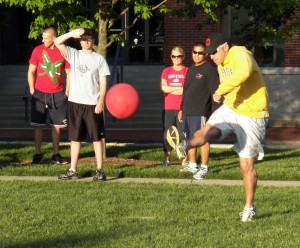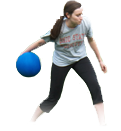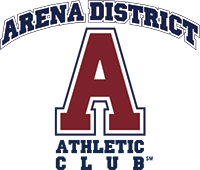
Playing kickball as an adult taught me that the best teams are the ones that know how to lose
Playing kickball as an adult taught me that the best teams are the ones that know how to lose. When I was a child, I was not very good at hitting balls with sticks or kicking them with my feet. I didn’t think this was a huge tragedy. But my classmates—suburban mini-jocks with blond hair and weirdly precocious opinions about designer labels—certainly seemed to hold it against me. I got used to being picked last in gym class, tried to lay low in the outfield, and accepted that PE class was basically a state-sanctioned form of emotional torture.
Since team sports seemed cruelly Darwinian and stressful, I vowed to avoid them whenever I could. Things went on that way for years. And then, this fall, I took a leap of faith and joined a glow-in-the-dark kickball team with my coworkers. (Kickball, for those not in the know, is essentially the same game as baseball, but with kicking the ball instead of batting it. The game was played at night, with a ball covered in glow sticks so that we could see it.)
By the end of the season, I’d realized that I don’t hate team sports after all. I just hate unnecessarily nerve-wracking team dynamics. As a 33-year-old woman, I was just as bad at kickball as my 10-year-old self had been. But my experience of the game was totally different—because I was playing alongside supportive, emotionally mature adults. I didn’t feel self-conscious when I accidentally bunted or threw the ball in the wrong direction. I was having fun.
The experience got me thinking about the kinds of group dynamics that make people feel safe enough to risk embarrassment in front of each other—a topic that’s generated a lot of interest in an era when every Silicon Valley startup touts the importance of risk-taking and failure. Here are a few of the things kickball taught me about what supportive teams look like—with lessons that apply just as much in the workplace as they do on the field.
1) Teams work best when people are forthcoming about their insecurities
One of the best things about playing kickball with a bunch of bookish coworkers is that a lot of us were scared of team sports. Over the office messaging app Slack, we confessed to traumatic elementary-school memories and warned of our lack of athletic prowess.

Our team captain spent a lot of time reassuring us:

All the kickball anxiety was admittedly ridiculous—but I think airing it early served an important purpose. The nervous people were able to relax, since we knew we wouldn’t be the only unathletic types in the mix. And talking openly about our insecurities helped the team establish our attitude in advance: We weren’t going to play to win. We were really, truly just trying to have fun.
As it turned out, it was a good thing that we’d lowered our collective expectations ahead of time. As the kickball season got underway, it became increasingly clear that our team was pretty bad. Which brings me to my second realization:
2) A healthy team supports each other even when they’re flailing
To be clear, not every player on the kickball team was awful. We had some straight-up superstars: power kickers who could send the glowstick-covered ball soaring through the night sky like a UFO; a pitcher who intimidated players with her frighteningly cool attitude; a guy who threw himself at pop flies with pure, fully committed joy. (“I just love catching things,” he explained later on.) One player somehow managed to be everywhere in the outfield all at once. “We wanted to be mad because we were losing, but we couldn’t, because he was just so good,” one of our opponents said after a game.
But as a team? We were bad. We lost all the time. We were a little fuzzy on the precise rules of kickball, so we kept accidentally discovering new ways to get out when we were running around the bases. Toward the beginning of the season, we wouldn’t always communicate with each other in the outfield, which led to a lot of misunderstandings. It was not unusual for us to lose by 20 points or more.
And the joy of it was: Nobody cared! We all cheered for each other whether we scored a home run or were called out after three fouls. High fives abounded. “Good hustle,” a teammate might shout to me after I’d fumbled a catch. And even when we lost, we found other things to celebrate:

To be clear, we definitely wanted to win. But we weren’t mad at ourselves or each other when things didn’t go our way. Instead, we focused on improvement:
![]()
3) Rituals make all the difference
Even with all the camaraderie, our team might have felt discouraged if we’d just picked up and gone home after losing 22-1. Luckily, the kickball league also required us to participate in mandatory flip-cup, a drinking game many of us had not played since college.
Flip-cup gave us a chance to redeem ourselves against the opposing team. But more importantly, it was a part of our Wednesday-night ritual—and rituals, I realized, can go a long way toward making people feel comfortable in potentially demoralizing circumstances. (Alcohol doesn’t hurt either.) It’s a lot easier to cope with the constant prospect of failure—which is inherently destabilizing—when you know you have a few things you can count on.
Gathering for drinks wasn’t the only tradition we followed. We alsoobserved all the classic rituals of sports movies, in the great tradition of the Bad News Bears and Mighty Ducks. At one point, our captain climbed atop a dirt mound and offered a speech.
“This is our team!” Lauren declared. “And this is our mound!” It was very inspirational. We all piled our hands on top of each other and shouted encouragingly, then headed out to play ball.
4) When you let people take their time getting comfortable, they may surprise you
I know this is going to sound crazy—because it is—but in the end, we made the playoffs. In most sports, the teams that make the playoffs are the ones that have performed the best for the whole season. But the past doesn’t matter in glow-in-the-dark kickball. The only thing that matters is how you do in the designated playoff game.
We were just as surprised by this turn of events as anyone. “Wait,” my coworker asked bewilderedly as we headed off the field and began lining up to shake hands with the opposing team. “What happened? Who won?”
It was us! We had won. We’d just sort of forgotten what it felt like to hope for it.
Ultimately, our team placed second in the league. It was the best inspirational sports movie finish anyone could have hoped for. (Taking first place would have been too unbelievable.)
Now, I know that not every company wants to lower the stakes quite so much as our kickball team did. “Fail fast, fail better” doesn’t necessarily mean “Who cares about the outcome of this endeavor, everybody gets a hug.”
But I think many workplaces would be better off if they shifted their focus from the false dialectic of winners and losers, and instead sought to cultivate the fearless, trusting, experimental, scrappy spirit of our kickball league. That’s the kind of team a whole lot of people want to be on.
https://qz.com/author/stoddqz/
The Arena District Athletic Club is more than just a gym. It’s a premier fitness facility located in the heart of the Arena District in downtown Columbus. We provide convenience and quality, featuring top-of-the-line equipment, top-notch personal trainers, and spa-like locker rooms. ADAC also offers a wide variety of free group fitness classes daily including Cardio, Spinning, Barre Fusion, Yoga, Boot Camp and more. Enjoy free 2-hour parking and convenient contract-free memberships to fit your healthy lifestyle needs. Don’t just join, belong.





